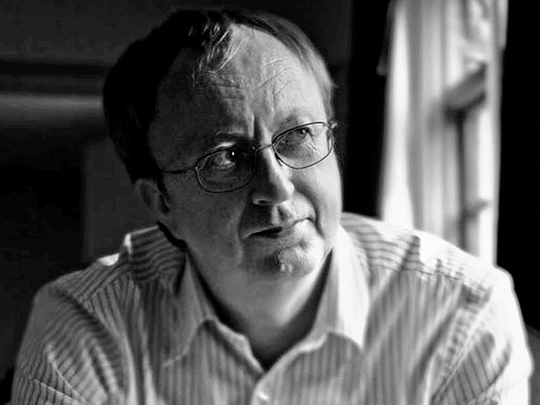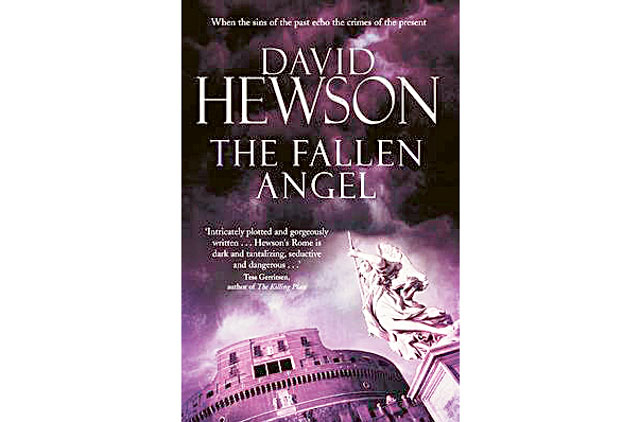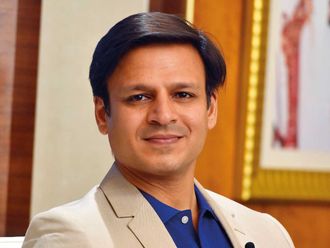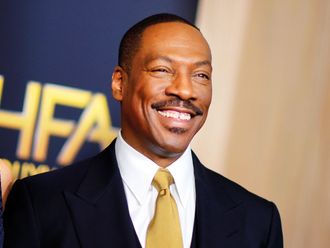
Many fiction guidance books advise writers to stick to writing what they already know about. Places, people, disciplines, towns, cities, names: Whatever the topic, writers should write about their "specialist subject".
This, however, is the opposite of what 16-time novelist David Hewson does and, indeed, advises others to do.
"Books come out of something that you invent; and writing about what you don't know makes you work to invent it more effectively," he told Weekend Review from London.
"Everybody's different and some writers focus on what they know very, very well. But I think fiction has to do with the imagination and with how vivid that world is that you're going to create for the reader. It is much more vivid if you've got to create it for yourself first," he said.
Hewson did create his own vivid world — and the world of detective Nic Costa in modern-day Rome.
The Costa series of books follows the young, enthusiastic and sometimes naïve detective as he delves into Rome's underbelly. Hewson's Rome has been described as "dark and tantalising, seductive and dangerous", a place where the past and present meld together.
To create this world, the author moved to Rome 20 years ago, when he first started writing the Costa series.
He found an apartment and enrolled at a language school, spending time with Romans to envelop himself in his new setting.
With the ninth Costa book, The Fallen Angel, Hewson moved to the area, took a lot of photographs, spoke to people and read "a lot of books".
"I sort of had to build my Rome brick by brick, from scratch," he said.
The author is "meticulous" with his research. People were very useful when Hewson was researching his books — they let him into their houses to see what the square looked like from their window, for example, and even let him take pictures.
"It's just old-fashioned leg-work, basically," he said. "People would say how do you find things out; and I'd say, well, you ask people."
He is also unwilling to write about areas he has never been to.
However, what sets his Italy books apart from other works set in foreign countries is that his protagonists are native to the setting.
"I really need to see how they think and try to be able to see the world through their eyes, not through the eyes of an Englishman … which is a very pleasant way to do it, but unavoidable," he said.
Hewson found Romans incredibly friendly, "extraordinarily warm, open and inquisitive" as a people. While people would speak to you on a bus in Rome very easily, they wouldn't be likely to do this in Florence or Venice.
Rome, he said, is a "very unusual city", which is "more like a collection of villages cramped together".
The Ghetto area, in which The Fallen Angel is set, doesn't attract many tourists. While there is not much to see in the way of sights, the area is steeped in history.
The tragic tale of Beatrice Cenci — a young noblewoman of the 16th century — is the focal point of the above-mentioned novel.
"You can see where she lived, you can see where she was jailed, you can see where she was executed, you can see the church where they took her afterwards and you can go into the black museum at the Justice Ministry and see the sword that was used to execute her," he said.
Even after ten years of writing about Rome, the author said he still hasn't even begun to explore it, "because, really, it's a small universe of its own".
In fact, all but one of Hewson's novels are set abroad from his native England.
The novelist is a former Times journalist and while he said it was a "great job" while he was doing it, being a writer is "far more hectic".
The Fallen Angel has been chosen for a television adaptation and Hewson is advising the production company. Shooting is due to start in 2012.
"The thing about Rome is that history is just so alive, you know it is part of the present, which is what interests me," Hewson said.









